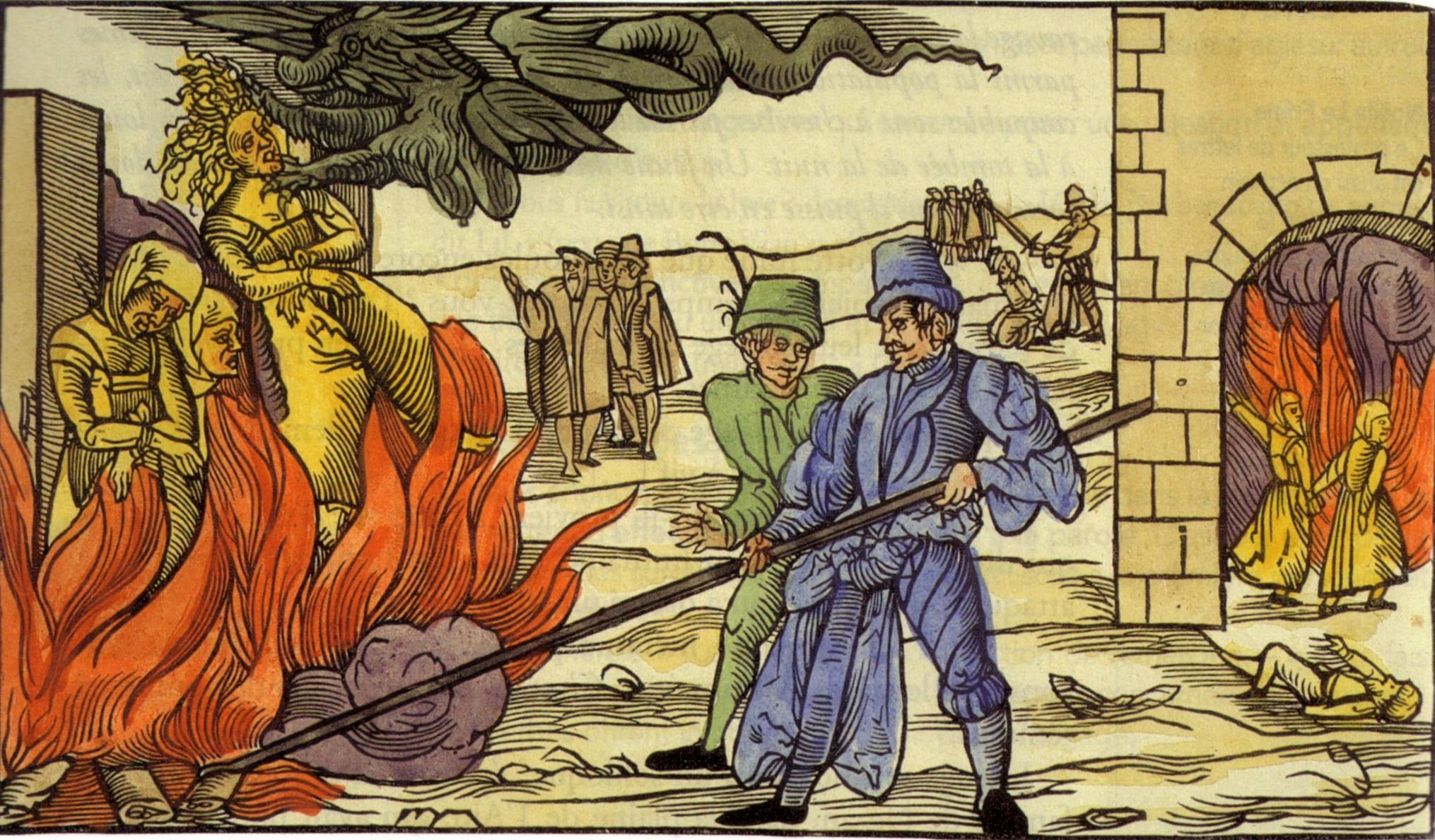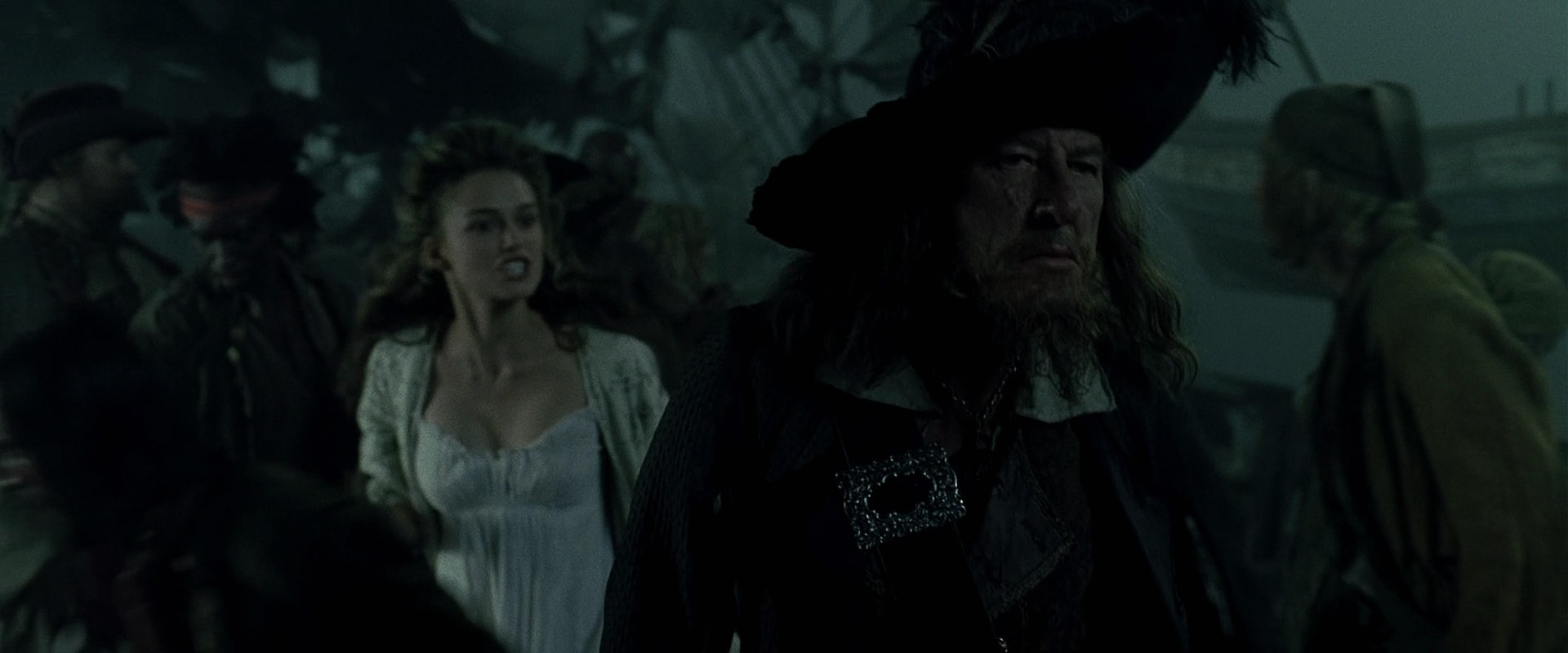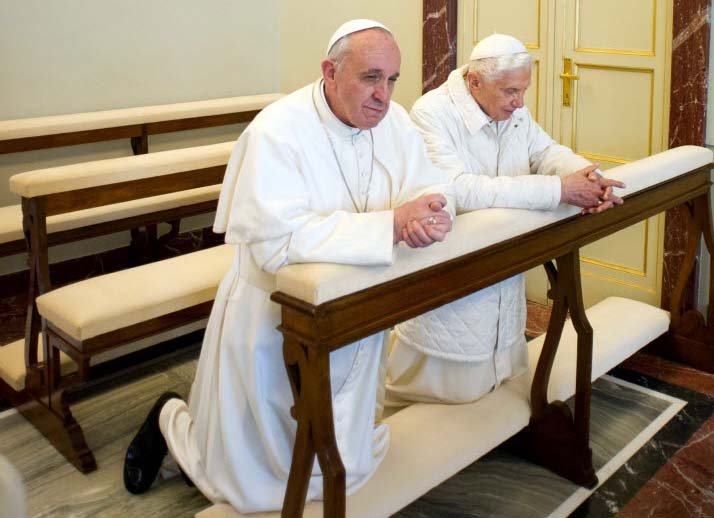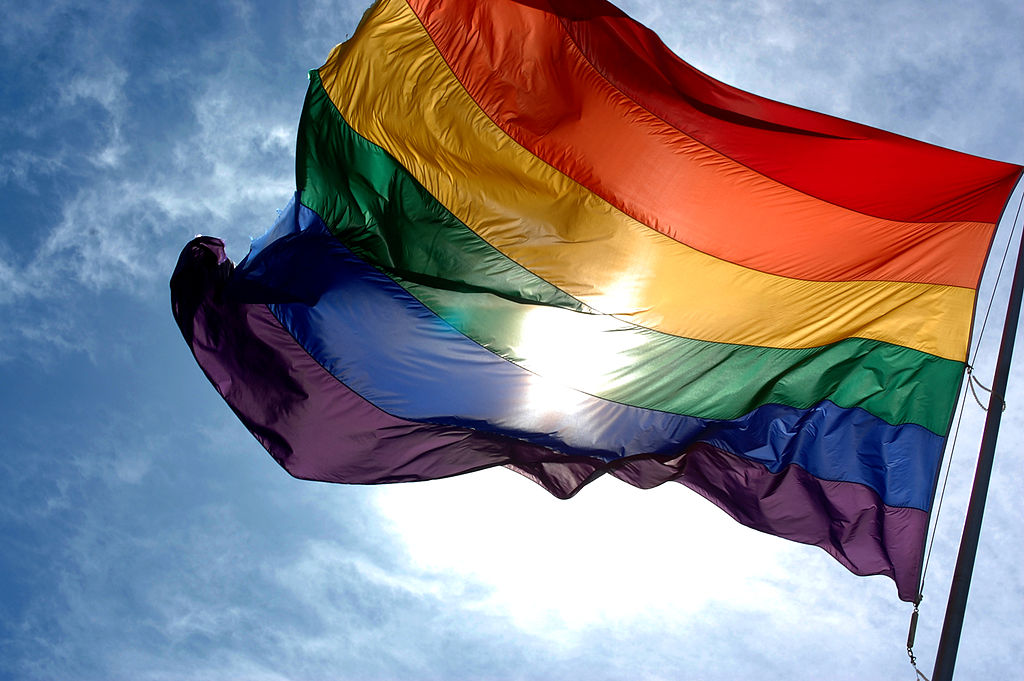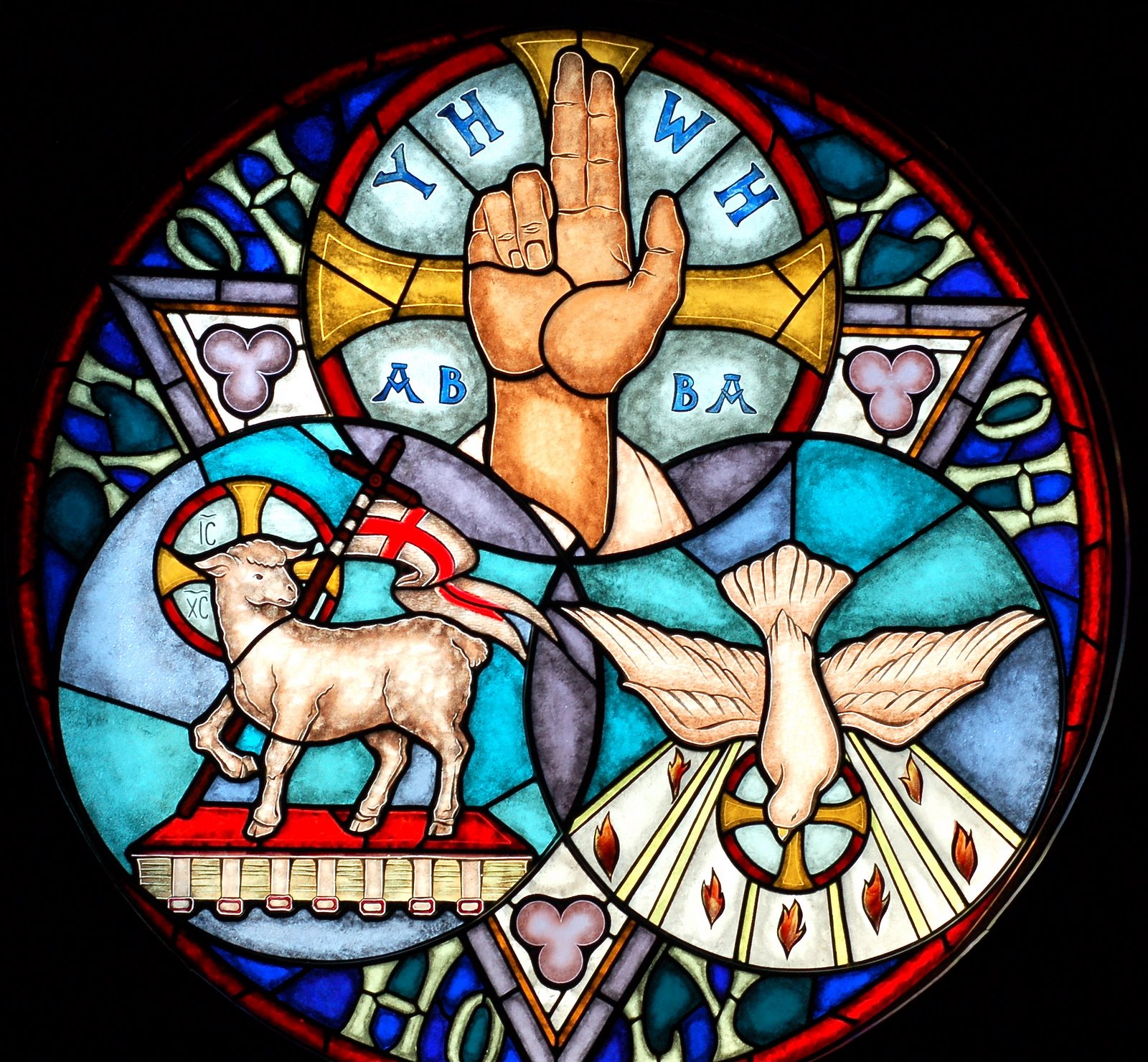To my widower
Study me then, you who shall lovers bee
At the next world, that is, at the next Spring,
For I am every dead thing,
In whom love wrought new Alchimie.
-- John Donne
Love is the most terrible of the gods.
Those deities whose demesne is among passions or pleasures
Are scarcely more than sprites or river-gods,
When shaken by the crashing of the ambrosial curls of Love.
Beauty has mastering force in its subtle hands;
5
Truth seems almighty when at first you meet it,
Prostrate before dispassioned clarity
Unmoved and moving; nonetheless,
Love is the older and the stronger power.
Love twines through every other thing:
10
Through breath and warmth and light, secretly
He insinuates himself through every vein, nerve, and sinew,
Releasing nothing, no one from his grasp.
The murmur that enchants the drowsing lover
In the drugged, dreaming hours perfumed with heat;
15
The Orphic voice, ringing jewel-clear among the entangling flowers;
The divine thundering, above the dread Ocean's face, below the hieratic stars:
None is afore, or after other,
None is greater, or less than another.
Love's single voice rings through,
20
Breaking the cedars.
Yes, God is Love, though the word sticks in the throat.
I have known Love
As the honeyed scroll embittering the entrails;
As the devouring fire that terrified the sons of Israel,
25
And was silent to the mantled gaze of Elijah.
I have drunk deep, deep of the fountain of the Spirit
And been cast by the Spirit into the wilderness,
Its nights without fire,
Its days empty and alien.
30
I have wandered the dunes and wadis of the pathless waste and eaten of the stones;
I have fallen, fallen from the uttermost pinnacle of the Temple;
I have beheld all the kingdoms of the world, and the glory of them,
And behind them, as in a glass darkly, a strange pair of horns.
I also have sat outside the great city,
35
Unable to discern between my right hand and my left,
While the gourd curled up around my head
Only to lay its dried corpse around me in a blast of sulfurous, pentecostal wind.
I also have mourned the pillar of salt, blasphemed among the potsherds and the ashes,
Seen the ram tangled in the thicket only when my hands were drenched with scarlet.
40
I laid myself upon the floor of the Ocean,
Arms crossed for blessing upon my breast,
And listened to the cold drums of the saltwater
Beating mournfully upon rocky shores seven miles overhead.
I chanted my hymn to Love
45
And the murmuring song ascended from sea to firmament
As I breathed deeply of the seaweed and feasted upon the old, black earth,
And I was no one to the whale and Leviathan took no heed;
So that I myself was drawn out with a hook -- assumed
From the shelter into which I had fallen, from the bowels of the brine.
50
Risen in the open air, I stared at the quicksilvered stars,
Shaking before the dread eyes of the heavens who were given charge over me.
And then I heard the Orphic voice, saying,
"Come up here, and I shall show thee what is to take place after this,
Not by conversion of the Godhead into flesh,
55
But by the taking of the manhood into God."
The pentecostal blast returned, and clove the sea in two;
The fundament of the Ocean was laid bare,
Dry as bones in the wilderness.
The earth shook. The heavens were parted
60
And rolled up like a scroll that snaps back into its accustomed spiral
At the fracture of its final seal.
Suspended between earth and sky and sea, in the midst of the Throne
I saw the seven holy eyes, and knew
That I, like the ancient prophetess my sister,
65
Would never be believed when I prophesied unto the breath
Because I spurned the Divine Bridegroom
To whom I had promised my naked soul and body.
The tongue of fire hovers over me indeed, and speaks with the tongues of men and of angels,
But what it proclaims is sealed up with the seven thunders.
70
Bowing, I pulled my mantle over my head,
And murmured, "Blessed be the name of the Lord."
All this, all this is written in the terrible book of Love.
Had Delphica or Sibyl or Elijah forewarned me,
I might have refused to sell my soul to God --
75
Might have refused to write my name in Blood
Most Precious, forsworn the incanted vows and execrations.
Might, might: too late.
The Book of Life lies open and its golden pages are drenched with scarlet
(The wounded Hands bleed everlastingly);
80
The murmured vows are broken, yet persist,
Renewing themselves, a vine twining through every vein, nerve, and sinew;
Already I know the savor of heaven.
If only I could want what I would want
I should be holy, even now.
85
"Sovegna vos a temps de ma dolor,"
Poi s'ascose nel foco che gl'affina.
Which Faith except every one do keep,
Whole and undefiled:
He cannot be saved.
90
+ + + + + + +
N
OTES
Title. An
epithalamion is a Greek term for a poem or hymn written in celebration of a marriage; Donne wrote several, as of course did multitudes of other poets. The prefix
anti- means against, instead of, or in the place of.
Epigram. Taken from
A Nocturnall Upon S. Lucies Day, written by Donne after the deaths of a close friend and his daughter. The specific reference it makes to alchemy (a longstanding motif in English literature) is reflected in this poem, with references to salt, sulfur, and mercury, which were believed by some alchemists to be the fundamental principles of all matter, and therefore to be capable of producing gold when properly balanced.
4. Cf. the
Iliad I.644-651, where Zeus assents to a request from Thetis, the divine mother of Achilles (Cowper's translation):
"'And to assure thee more, I give the sign
Indubitable, which all fear expels
At once from heavenly minds. Nought, so confirmed,
May, after, be revers'd or rendered vain.'
He ceased, and under his dark brows the nod
Vouchsafed of confirmation. All around
The Sovereign's everlasting head his curls
Ambrosial shook, and the huge mountain reeled."
5-9. Suggesting the Platonic triad of the Beautiful, the True, and the Good, but replacing the Good with Love.
8. Suggesting Aristotle's Unmoved Mover, the universal First Cause. Cf. also the closing lines of the
Paradiso: "My will and my desire were turned by love, / The love that moves the sun and the other stars."
16. Orpheus, according to Greek and later Roman mythology, had the most beautiful voice in all the world and all time: he could tame beasts with his singing, was able to withstand and drown out the Sirens who lured other men to their deaths with the beauty of their voices, and even charmed Hades, the god of the dead, into allowing him to take his departed wife Eurydice back to the upper world (in some versions of this myth, a ban is imposed which he violates, resulting in Eurydice being reclaimed by death; in others, he is simply successful, and they live out their days together). In the Roman Imperial period, there were religious mysteries devoted to Orpheus, and he was sometimes regarded or used as an analogue or parallel to Christ: the Emperor Philip, famous for tolerating Christians in contrast to his predecessors, reportedly had statues of Christ and Orpheus, among others, in his personal chapel.
18-19. A quotation from the Athanasian Creed (or
Quicunque Vult), used occasionally in the public and private worship of the Anglican Communion and the Roman Rite of the Catholic Church. It forms part of the lengthy definition this creed gives of the Trinity: "And in this Trinity none is afore, or after other: none is greater, or less than another; But the whole three Persons are co-eternal together: and co-equal."
21. Cf. Psalm 29.5:
The voice of the LORD breaketh the cedars; yea, the LORD breaketh the cedars of Lebanon.
24. Cf. Revelation 10.8-10:
And the voice which I heard from heaven spake unto me again, and said, Go and take the little book which is open in the hand of the angel which standeth upon the sea and upon the earth. And I went unto the angel and said unto him, Give me the little book. And he said unto me, Take it, and eat it up; and it shall make thy belly bitter, but it shall be in thy mouth sweet as honey. And I took the little book out of the angel's hand, and ate it up; and it was in my mouth sweet as honey: and as soon as I had eaten it, my belly was bitter.
25. Cf. Exodus 20.18-19:
And all the people saw the thunderings, and the lightnings, and the noise of the trumpet, and the mountain smoking: and when the people saw it, they removed and stood afar off. And they said unto Moses, Speak thou with us, and we will hear: but let not God speak with us, lest we die. Cf. also Hebrews 12.18-24.
26. Cf. I Kings 19.11b-13a:
And, behold, the LORD passed by, and a great and strong wind rent the mountains, and brake in pieces the rocks before the LORD; but the LORD was not in the wind: and after the wind an earthquake, but the LORD was not in the earthquake: and after the earthquake a fire; but the LORD was not in the fire: and after the fire a still small voice. And it was so, when Elijah heard it, that he wrapped his face in his mantle, and went out, and stood in the entering of the cave.
27ff. This sequence makes several references to the Temptation of Christ (spoken of in Mark 1.12-13, and in more detail in Matthew 4.1-11 and Luke 4.1-12). Satan is described in these accounts as tempting Jesus first to violate His fast and presume upon His miraculous power by turning stones into bread; second, to test God's election of Him by hurling Himself from the highest tower of the Temple, so that angels would come and rescue Him; and third, to accept the whole earth immediately (rather than enduring the Passion), but as Satan's gift and at the price of worshiping him.
35-38. Containing several allusions to the book of Jonah. Though more famous for the story of the whale, Jonah's mission as a prophet had been to preach repentance to the Assyrian capital, Nineveh. When he did, the people repented; Jonah, who hated the Assyrians, was furious, and went outside the city to wait and watch, hoping that God would destroy the city anyway. The last few verses of the book are specially relevant:
And the LORD God prepared a gourd, and made it to come up over Jonah, that it might be a shadow over his head, to deliver him from his grief. So Jonah was exceeding glad of the gourd. But God prepared a worm when the morning rose the next day, and it smote the gourd that it withered. And it came to pass, when the sun did arise, that God prepared a vehement east wind; and the sun beat upon the head of Jonah, that he fainted, and wished himself to die, and said, It is better for me to die than to live. And God said to Jonah, Doest thou well to be angry for the gourd? And he said, I do well to be angry, even unto death. Then said the LORD, Thou hast had pity on the gourd, for the which thou hast not labored, neither madest it grow; which came up in a night, and perished in a night: and should I not spare Nineveh, that great city, wherein are more than sixscore thousand persons that cannot discern between their right hand and their left hand; and also much cattle?
39. Alluding, first, to the story of Lot's wife being transformed into a pillar of salt during his family's escape from the destruction of Sodom and Gomorrah (Genesis 19.24-29), and second, to the story of Job, particularly 2.7-10:
So went Satan forth from the presence of the LORD, and smote Job with sore boils from the sole of his foot unto his crown. And he took a potsherd to scrape himself withal; and he sat down among the ashes. And his wife said unto him, Dost thou still retain thine integrity? curse God, and die. But he said unto her, Thou speakest as one of the foolish women speaketh. What? shall we receive good at the hand of God, and shall we not receive evil? In all this did not Job sin with his lips.
40. An allusion to the famous story of the sacrifice of Isaac. In the Biblical account (Genesis 22.1-19) Isaac is spared at the last moment by the intervention of an angel sent by God, and Abraham offers a ram which he found tangled in a thicket nearby (as a substitute for Isaac, or as a thank-offering, or both). It is possible that the story was told at least in part to counteract the tradition in Palestine at the time of sacrificing infants and children to the local gods, Molech particularly.
42. In the Roman Catholic Church, persons ineligible to receive the Eucharist (whether due to unconfessed mortal sin or because of being out of full communion with the Pope) may receive a blessing from the ministering priest instead, to signify which the arms are crossed in an X shape over the chest; this tradition is of course also observed for the burial of the dead.
47. Alluding to two of T. S. Eliot's works. His first poem ever published,
The Love Song of J. Alfred Prufrock, closes with the lines "We have lingered in the chambers of the sea / By sea-girls wreathed with seaweed red and brown / Till human voices wake us, and we drown."
Murder In the Cathedral, a much later play about the martyrdom of St. Thomas Becket (written some years after his conversion the Anglo-Catholic faith and during the rise of the Nazi state in Germany), contains several extended lyrical passages uttered by a chorus who are anticipating the murder of the saint, and at one point they utter the line, "I have lain on the floor of the sea and breathed with the breathing of the sea-anemone, swallowed with ingurgitation of the sponge. I have lain in the soil and criticized the worm."
48. Another reference to Jonah, followed by another reference to Job. The precise identity of Leviathan is unknown (a crocodile has been suggested); the pertinent verse is 41.1:
Canst thou draw out leviathan with an hook? or his tongue with a cord which thou lettest down? The verse comes during an extended passage in which God rebukes Job for presumption.
52. The stars, in both the Bible and Judeo-Christian literature, are traditional symbols of the angelic host. This particular line suggests Revelation 4.6b, 8:
And in the midst of the throne, and round about the throne, were four beasts full of eyes before and behind. ... And the four beasts had each of them six wings about him; and they were full of eyes within: and they rest not day and night, saying, Holy, holy, holy, LORD God Almighty, which was and is and is to come.
54. A quotation from Revelation 4.1, in which St. John the Divine, the seer who penned the book, is summoned into heaven to receive the vision.
55-56. Another quotation from the Athanasian Creed. Having defined the Trinity in its first half, it defines the Incarnation in the second half. These lines come from this sequence, describing Christ: "Who although he be God and Man: yet he is not two, but one Christ; One, not by conversion of the Godhead into flesh: but by taking of the Manhood into God; One altogether, not by confusion of substance: but by unity of Person."
57. Suggesting the parting of the Red Sea; cf. Exodus 14.21:
And Moses stretched out his hand over the sea: and the LORD caused the sea to go back by a strong east wind all that night, and made the sea dry land, and the waters were divided.
59. Suggesting Ezekiel 37.1-14, in which the prophet receives a vision of a valley full of skeletons, to which he is directed to prophesy. They are restored to the state of full bodies, though still dead. He is then ordered to prophesy to the wind, or breath (the same Hebrew word), which he does, and it enters them and brings them to life. The description of the angels in Revelation, already alluded to, contains several deliberate echoes of other passages in Ezekiel.
60-62. The image of the heavens being rolled up like a scroll is a regular motif in Biblical prophecy and apocalypse, which has been transmitted into hymnody, sermons, and popular imagery. Revelation 5.1-8.1 contains an extended passage in which the Lamb (Christ) receives a scroll from the hand of God, sealed with seven seals, which he breaks one by one.
64. A more specific reference to the scroll sequence in Revelation; note specifically 5.6: And I beheld, and lo, in the midst of the throne and of the four beasts, stood a Lamb as it had been slain, having seven horns and seven eyes, which are the seven Spirits of God sent out into all the earth.
65ff. Suggesting Cassandra. In the mythology of Troy, Cassandra was the sister of Paris and Hector, and was a priestess of Apollo. She promised herself to the god, for which he granted her the gift of prophecy, but she then broke her promise. Furious, but unable to withdraw the gift he had given, Apollo added to it a curse that, though always right in her predictions, she would never be believed.
69. References to the outpouring of the Holy Ghost upon the infant Church at Pentecost (Acts 2.1-4ff) and to St. Paul's famous hymn to Christian love in I Corinthians 13.
70. Another allusion to Revelation, this time to 10.4:
When the seven thunders had uttered their voices, I was about to write: and I heard a voice from heaven saying unto me, Seal up those things which the seven thunders uttered, and write them not. No further reference is made to this enigmatic verse.
71-72. References back to Elijah and Job (cf. Job 1.21).
74. Delphica, i.e. the oracle of Delphi, famous for being Apollo's personal oracle and utterly infallible -- as well as for giving exceedingly cryptic replies to inquiries. The Sibyl was a Roman parallel, located in southern Italy. Both, as well as the prophet Elijah and many other classical and Judeo-Christian figures, are depicted on the ceiling of the Sistine Chapel.
75ff. Suggesting (and subverting) the tradition of pacts made with the Devil, usually aimed at increasing one's wealth and power. The most famous of these in legend is, of course, Faust, whose story has been told repeatedly for centuries.
79. The Book of Life is alluded to a few times throughout the New Testament, and is an image of those who are in the favor of God. The most famous reference to it is doubtless Revelation 20.11-15, where the Last Judgment is described, at which absence from the Book of Life is the condition for being cast into the lake of fire.
82. Suggesting the gourd already mentioned, but also John 15.5 and its surrounding context:
I am the vine, ye are the branches: he that abideth in me, and I in him, the same bringeth forth much fruit: for without me ye can do nothing.
83. Suggesting another passage from
Murder In the Cathedral, this time spoken by the martyred archbishop: "I have had a tremor of bliss, a wink of heaven, a whisper, / And I would no longer be denied; all things / Proceed to a joyful consummation."
86-87. A quotation from the Italian original of Dante's
Purgatorio (XXVI.147-148). A loose translation would be, "'O think at times of how I suffer here,' then plunged him in the fire that refines them." The speaker of the first line is a famous poet, Arnaut Daniel, whom Dante meets in Purgatory in the place where the stain of lust is purified out of penitent souls through fire. These lines, in Italian, also make occasional appearances in Eliot's verse, in fragments, notably in the closing section of
The Waste Land and part IV of
Ash Wednesday.
88-90. These lines are quoted from the beginning and the end of the Athanasian Creed.

.svg/1084px-Uganda_in_Africa_(-mini_map_-rivers).svg.png)






